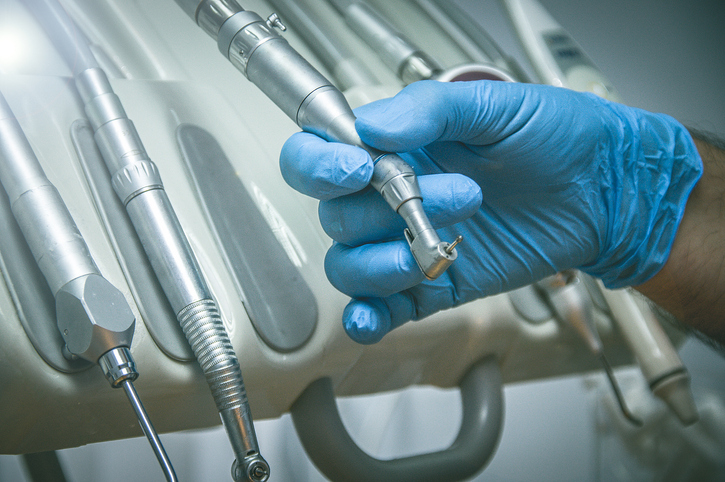
If you want to get rid of a cavity, you will need to have the tooth drilled. But you have nothing to fear!
Dentists use a lot of instruments to treat tooth decay and gum disease. But perhaps the one that causes the most anxiety in patients is the dental drill. Understandably, the mere thought of a drill working on your tooth can make you feel stressed and want to avoid the dentist altogether.
But you have nothing to worry about! A dental drill is the most effective way to remove cavities, and if cavities aren’t treated at the earliest stages, you could be setting yourself up for further dental problems down the road. So, a drill is a necessary tool in treating cavities and other oral conditions, but the results and benefits are worth it.
Why a dental drill is necessary
To fill a cavity, your dentist must first dig out the decayed area of the tooth’s enamel and dentin. If the cavity is allowed to grow, it will further damage the tooth and reach into the pulp, where nerves, blood vessels, and soft tissue reside.
A dental drill is a mechanical device that clears the decay, allowing a healthy portion of the tooth to remain. The dentist will then fill the cavity with silver or white-colored material that maintains the tooth’s chewing surface. Dental drills are also used in root canals and dental implant procedures.
Your dentist may administer a local anesthetic before drilling to make you feel more comfortable. You can also talk to your dentist about other ways to calm your anxiety about drilling. Although new technologies, such as laser drills, may be on the horizon, these tools have yet to be widely used. Their effectiveness hasn’t been adequately studied, and a drill remains the instrument of choice for cavity removal.
How to avoid the drill
Of course, the best method to sidestep the drill is to prevent cavities! The food you eat and drink leaves behind bacteria that can form into damaging plaque. What’s more, when you consume sugary beverages and snacks, the bacteria combines with the sugar to create an acid. The acid attacks the hard protective layer of enamel, weakening it and leading to a cavity.
Preventing cavities — and avoiding the dreaded drill — comes down to consistent oral care practices. Let’s go over those techniques:
Brush daily. Brush your teeth twice daily using gentle circular motions to clear away plaque and bacteria. To further combat decay, brush with fluoride toothpaste. Never forget to brush before bed. It’s your last chance to get rid of bacteria that has built up during the day.
Floss daily. Floss between your teeth at least once per day. Not only does flossing remove food particles, but it can also stimulate your gums and keep them healthy.
Use a mouthwash. Mouthwash is another excellent tool in your arsenal to maintain good oral health. Like flossing, it can penetrate hard-to-reach places between teeth. For people who have difficulty brushing and flossing, a mouth rinse can work just as well.
Limit sugars. As mentioned earlier, sugary and acidic foods bind with bacteria to form an acid. Over time, that acid burrows into the tooth’s enamel and results in a cavity. So limit your intake of sugary foods to protect your teeth. But if you must indulge, drink water to wash away the sugar and acids. In fact, water is the best drink for your oral (and overall) health.
See your dentist regularly. As good as your home care routine is, you still need to see your dentist twice a year. The dentist can spot the beginning stages of a cavity, which may appear as a white, brown, or black spot. Your dentist may repair a small cavity with fluoride if caught early enough. More extensive decay will be removed with a drill. But afterward, you’ll have a much healthier tooth!
We’re here to help
Schedule an appointment at Espire’s Colorado Springs location today! Our highly trained dentists can restore your teeth by repairing cavities and decay. We will also take the time to calm any anxiety you may have about the treatment. Don’t live near our Colorado Springs office? Find one of our other locations near you.
Colorado Springs
8610 Explorer Drive #315
Colorado Springs, CO 80920

